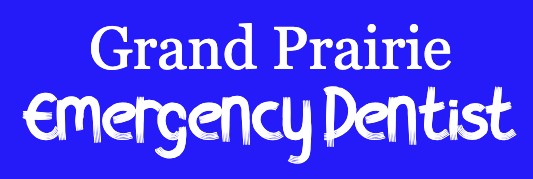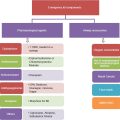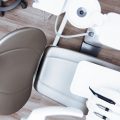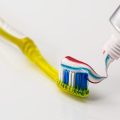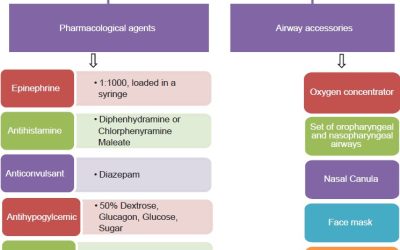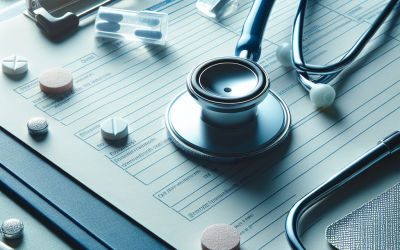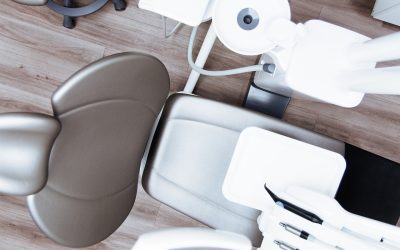So, you find yourself in a dental predicament, huh? You’ve got an issue with your teeth that’s causing you some serious discomfort, and you’re wondering whether it’s urgent enough to warrant a visit to the emergency dentist. Well, you’re in the right place to find out. In this article, we’ll explore common dental emergencies and help you determine whether your situation falls into that category. No need to panic just yet, we’ve got you covered!
Common Dental Emergencies
When it comes to dental emergencies, there are several common situations that may require immediate attention. Knowing what these emergencies are can help you determine if your situation requires a visit to an emergency dentist. Here are some of the most common dental emergencies:
Toothache
A toothache can range from mild discomfort to excruciating pain. It can be caused by various factors such as tooth decay, gum disease, or an infection. If you are experiencing severe and persistent tooth pain, it is important to seek emergency dental care.
Broken Tooth
A broken tooth can occur due to trauma, biting on hard objects, or untreated tooth decay. If you have a broken tooth, it is important to see an emergency dentist as soon as possible. Leaving a broken tooth untreated can lead to further damage and potential infection.
Knocked-Out Tooth
Having a tooth knocked-out can be a traumatic experience, but acting quickly can increase the chances of saving the tooth. If you have a knocked-out tooth, it is crucial to see an emergency dentist within the first hour. Make sure to keep the tooth moist by placing it in milk or saliva, and avoid touching the root of the tooth.
Loose Tooth
If you have a loose tooth, it may be a sign of an underlying dental issue such as gum disease or teeth grinding. While a loose baby tooth may not require immediate attention, a loose adult tooth should be evaluated by an emergency dentist to determine the cause and appropriate treatment.
Lost Filling or Crown
A lost filling or crown can leave the affected tooth vulnerable to further damage and decay. It is important to protect the tooth and seek emergency dental care to prevent any complications. In the meantime, you can use dental cement or sugar-free gum to cover the exposed area.
Broken Jaw
A broken jaw is a severe dental emergency that requires immediate medical attention. In addition to seeking emergency dental care, it is important to contact emergency services or visit the nearest emergency room. Avoid moving your jaw and keep it stabilized until you receive professional help.
Abscessed Tooth
An abscessed tooth is a painful infection that occurs at the root of a tooth or between the tooth and gums. It can cause intense pain, swelling, and a bad taste in the mouth. If you suspect you have an abscessed tooth, it is crucial to see an emergency dentist as soon as possible to prevent the infection from spreading.
Object Stuck Between Teeth
If you have an object stuck between your teeth that you cannot remove with flossing, it is important to seek emergency dental care. The object can cause discomfort, pain, and potentially lead to infection if left untreated. Avoid using sharp objects to remove the object, as this can cause further damage.
Soft Tissue Injury
A soft tissue injury refers to damage to the gums, tongue, or lips. This can occur due to trauma, biting, or accidents. If you have a soft tissue injury that is bleeding excessively or does not stop bleeding, it is important to seek immediate dental care. Applying gentle pressure with clean gauze can help control the bleeding temporarily.
Bleeding Gums
While mild gum bleeding during brushing or flossing may not necessarily be an emergency, persistent and excessive gum bleeding could be a sign of gum disease or other underlying dental issues. If you are experiencing severe gum bleeding that does not stop, it is advisable to seek emergency dental care to determine the cause and appropriate treatment.
Symptoms That Indicate Urgency
Knowing the symptoms that indicate dental emergencies can help you determine the urgency of your situation. Here are some symptoms that should be taken seriously:
Severe and Persistent Pain
Severe and persistent tooth pain that does not subside with over-the-counter painkillers may indicate a dental emergency. This could be a sign of an infection, abscess, or other underlying dental issues.
Facial Swelling
Facial swelling, especially if it is accompanied by pain and difficulty in opening or closing your mouth, could indicate an infection or abscess. This should be evaluated by an emergency dentist as soon as possible to prevent the infection from spreading.
Bleeding that Doesn’t Stop
If you have bleeding in your mouth that does not stop or is excessive, it may indicate a serious dental emergency. This could be a sign of trauma or an underlying dental issue that requires immediate attention.
Difficulty Eating or Speaking
If you are experiencing difficulty eating or speaking due to dental pain or discomfort, it is important to seek emergency dental care. This could be a sign of a severe dental problem that needs to be addressed promptly.
High Fever or Chills
A high fever or chills along with dental pain or swelling may indicate an infection that has spread beyond the tooth. This requires immediate attention from an emergency dentist to prevent further complications.
Severe Dental Trauma
If you have experienced severe dental trauma, such as a sports injury or car accident, it is important to seek emergency dental care. Prompt treatment can help save any affected teeth and prevent further damage.
Swollen Gums
Swelling of the gums, especially if it is accompanied by pain or bleeding, may indicate an infection or gum disease. Seek emergency dental care to prevent the infection from spreading and causing further complications.
Visible Cracks or Fractures
If you can see visible cracks or fractures in your teeth, it is important to see an emergency dentist. These cracks can weaken the tooth structure and may lead to further damage or tooth loss if left untreated.
Excessive Tooth Mobility
If you notice that one or more of your teeth are excessively loose or shifting out of place, it could indicate a dental emergency. This could be a sign of advanced gum disease or trauma that requires immediate attention.
Infection Symptoms
If you experience symptoms such as fever, facial swelling, difficulty swallowing, or a foul taste or odor in your mouth, it may indicate a dental infection. Seek emergency dental care to prevent the infection from spreading and causing further complications.

When to Seek Emergency Dental Care
Now that you know the common dental emergencies and the symptoms that indicate urgency, it’s important to understand when you should seek emergency dental care. Here are the situations that require immediate attention:
Severe Toothache
If you are experiencing a severe toothache that is accompanied by other symptoms such as swelling, fever, or difficulty breathing, it is important to seek emergency dental care. A severe toothache could be a sign of an underlying infection or other serious dental issue.
Cracked or Broken Tooth
If you have a cracked or broken tooth, it is important to see an emergency dentist as soon as possible. Leaving a cracked or broken tooth untreated can lead to further damage, pain, and potential infection.
Knocked-Out Tooth
If you have a tooth knocked-out, it is crucial to see an emergency dentist within the first hour. Acting quickly can increase the chances of saving the tooth. Remember to handle the tooth by the crown, not the root, and keep it moist until you receive professional help.
Loose Tooth
A loose adult tooth should be evaluated by an emergency dentist to determine the cause and appropriate treatment. It may be a sign of an underlying dental issue that needs to be addressed promptly.
Lost Filling or Crown
A lost filling or crown can leave the affected tooth vulnerable to further damage and decay. Seek emergency dental care to prevent any complications and protect the tooth from further damage.
Jaw Injury
A broken jaw is a severe dental emergency that requires immediate medical attention. In addition to seeking emergency dental care, it is important to contact emergency services or visit the nearest emergency room.
Infected Tooth
An abscessed or infected tooth requires immediate attention from an emergency dentist. The infection can spread to other parts of the body, leading to serious health complications if left untreated.
Object Stuck Between Teeth
If you have an object stuck between your teeth that you cannot remove with flossing, it is important to seek emergency dental care. Attempting to remove it with sharp objects can cause further damage.
Tongue or Lip Injury
If you have a tongue or lip injury that is bleeding excessively or does not stop bleeding, it is important to seek immediate dental care. Applying gentle pressure with clean gauze can help control the bleeding temporarily.
Bleeding Gums
If you are experiencing severe gum bleeding that does not stop, it is advisable to seek emergency dental care. This could be a sign of gum disease or other underlying dental issues that require immediate attention.
Determining the Severity of Your Situation
When faced with a dental emergency, it can be helpful to evaluate the severity of your situation before seeking immediate care. Here are some factors to consider:
Evaluate the Pain Level
Assess the severity of your pain on a scale from mild discomfort to excruciating pain. Severe and persistent pain may indicate a more urgent situation.
Assess the Visible Symptoms
Examine your mouth for any visible swelling, bleeding, cracks, or fractures. Visible symptoms can give you an indication of the severity of the situation.
Consider Functional Impairment
Take note of any difficulties you may have in eating, speaking, or opening and closing your mouth. Functional impairments may require immediate attention.
Assess the Duration
Consider how long you have been experiencing symptoms. If the symptoms have been persistent or worsening, it may be a sign of a more urgent situation.
Evaluate the Pain Relief Measures
If over-the-counter pain relievers or home remedies are not providing relief, it may be an indication that your situation requires immediate attention from an emergency dentist.
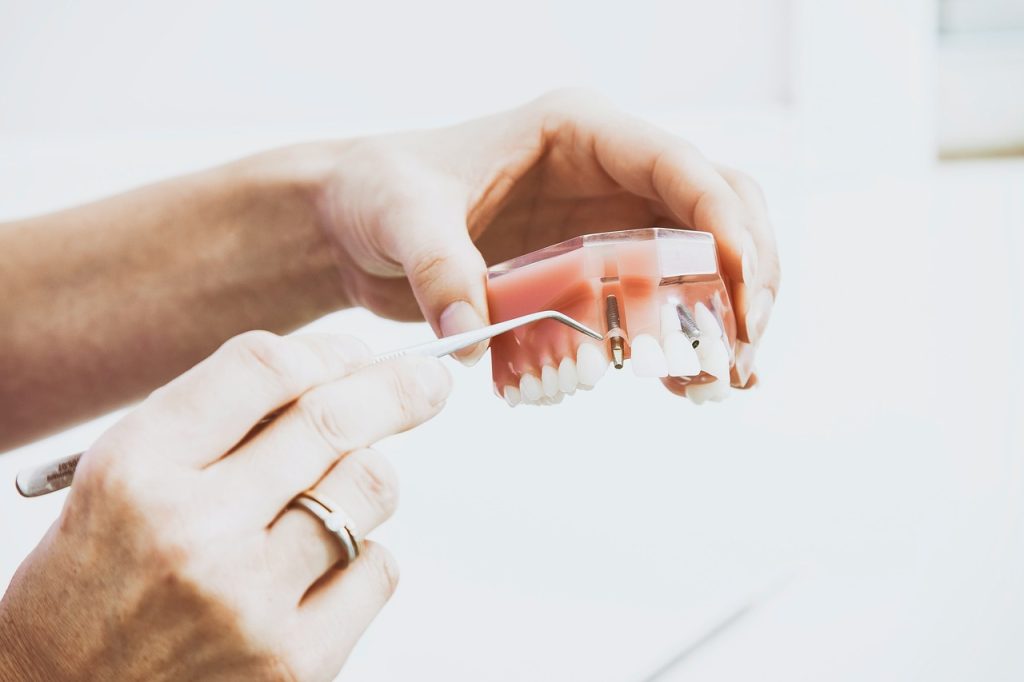
Handling Non-Urgent Dental Issues
Not all dental issues require immediate attention from an emergency dentist. Here are some non-urgent dental issues that can be managed until you can schedule a regular dental appointment:
Mild Tooth Sensitivity
If you have mild tooth sensitivity to hot or cold foods and beverages, it can usually wait until your next regular dental check-up. However, if the sensitivity is severe or accompanied by other symptoms, it may require immediate attention.
Minor Toothache
A minor toothache that is manageable with over-the-counter pain relievers can typically wait until your next regular dental visit. However, if the pain becomes severe or persistent, it should be addressed promptly.
Chipped Tooth without Pain
If you have chipped a tooth but are not experiencing any pain or discomfort, it can usually wait until your next regular dental appointment. However, if the chip is sharp or causing irritation to your tongue or cheeks, it may require immediate attention.
Dull Toothache
A dull toothache that comes and goes, without any other symptoms, can usually wait until your next regular dental check-up. However, if the toothache becomes severe or persistent, it should be evaluated by a dentist.
Lost Filling or Crown without Pain
If you have lost a filling or crown but are not experiencing any pain or sensitivity, it can generally wait until your next regular dental visit. However, if the exposed tooth is causing discomfort or leaving it vulnerable to damage, it may require immediate attention.
Loose Orthodontic Wire
If you have a loose orthodontic wire that is not causing any pain or discomfort, it can wait until your next orthodontic appointment. However, if the wire is poking or irritating your gums, tongue, or cheeks, it may require immediate attention.
Partial Denture Damage
If you have damaged your partial denture but it is still functional and not causing any discomfort, it can usually wait until your next regular dental visit. However, if the damage affects the fit or stability of the denture, it may require immediate attention.
Food Lodged Between Teeth
If you have food lodged between your teeth that you cannot remove with flossing, it can usually wait until your next regular dental visit. However, if it is causing pain or discomfort, it may require immediate attention.
Minor Gum Irritation
Minor gum irritation, such as redness or tenderness, can typically wait until your next regular dental check-up. However, if the irritation is severe, persistent, or accompanied by other symptoms, it may require immediate attention.
Orthodontic Discomfort
Discomfort related to orthodontic treatment, such as braces or aligners, can usually be managed with over-the-counter pain relievers and orthodontic wax. However, if the discomfort is severe, persistent, or associated with an injury, it may require immediate attention.
Preventing Dental Emergencies
While dental emergencies can happen unexpectedly, there are measures you can take to reduce the risk. Here are some preventive measures to keep in mind:
Maintaining Good Oral Hygiene
Practicing good oral hygiene, including brushing twice a day, flossing daily, and using mouthwash, can help prevent dental emergencies. Regularly cleaning your teeth and gums can prevent cavities, gum disease, and other dental issues.
Wearing Protective Mouthguards
If you engage in sports or activities that pose a risk of dental injury, wearing a mouthguard can help protect your teeth and reduce the chances of a dental emergency. Custom-fitted mouthguards from your dentist offer the best protection.
Avoiding Chewing Hard Objects
Avoid chewing on hard objects such as ice, hard candies, or pens. These habits can lead to cracked or broken teeth, which may require emergency dental care.
Taking Regular Dental Check-ups
Regular dental check-ups allow your dentist to detect and address any dental issues before they become emergencies. Routine cleanings and examinations can help prevent tooth decay, gum disease, and other oral health problems.
Addressing Dental Issues Early
If you experience any dental issues such as tooth sensitivity, minor toothaches, or gum irritation, it is important to address them early. Seeking early treatment can prevent these issues from worsening and potentially becoming dental emergencies.
Practicing Safe Sports
When participating in sports or physical activities, use proper protective gear such as helmets, faceguards, and mouthguards. This can significantly reduce the risk of dental injuries.

Actions to Take in Dental Emergencies
In the event of a dental emergency, it is important to know the appropriate actions to take. Here are some steps to follow:
Contacting an Emergency Dentist
If you are experiencing a dental emergency, contact an emergency dentist as soon as possible. They will provide guidance and schedule an appointment to address your emergency.
Managing Pain and Bleeding
If you are in pain or experiencing bleeding, you can manage the symptoms while waiting for professional help. Apply a cold compress to the affected area to reduce pain and swelling. For bleeding, gently apply pressure with clean gauze or a clean cloth.
Preserving a Knocked-Out Tooth
If a tooth has been knocked out, handle it by the crown and avoid touching the root. Rinse the tooth gently with water if it is dirty, but do not scrub or remove any attached tissue. Try to reinsert the tooth into the socket if possible. If not, place it in a container with milk or saliva to keep it moist until you can see an emergency dentist.
Keeping Broken Teeth Intact
If you have a broken tooth, try to keep the pieces intact. Rinse your mouth with warm water, and if there is bleeding, apply gentle pressure with clean gauze. Save any broken pieces in a container with milk or saliva and bring them to your emergency dental appointment.
Saving Lost Fillings or Crowns
If a filling or crown has fallen out, it is important to protect the tooth until you can see an emergency dentist. You can use dental cement or sugar-free gum to cover the exposed area. Avoid chewing on the affected tooth and follow the guidance of your emergency dentist.
Handling Soft Tissue Injuries
For soft tissue injuries such as a tongue or lip injury, gently clean the area with warm water and apply a cold compress to reduce swelling. If bleeding persists or becomes severe, seek immediate dental care.
Applying Cold Compress
For pain, swelling, or trauma, applying a cold compress to the affected area can help reduce discomfort and inflammation. Wrap an ice pack or a bag of frozen vegetables in a clean towel and apply it to the outside of your cheek.
Taking Over-the-counter Pain Relievers
Over-the-counter pain relievers can help manage dental pain temporarily. However, it is important to follow the recommended dosage and avoid exceeding the stated limits. These pain relievers should not substitute professional dental care.
Avoiding Self-treatment
While it may be tempting to try home remedies or self-treatment, it is important to avoid this in dental emergencies. Home remedies can sometimes worsen the situation or delay appropriate treatment. It is best to seek professional dental care.
Seeking Professional Advice
If you are unsure about the urgency of your dental situation or need advice on how to manage a dental emergency, contacting a dental professional is always recommended. They can provide you with the guidance you need based on your specific situation.
Emergency Dental Care vs. Regular Dental Care
Understanding the difference between emergency dental care and regular dental care is important for maintaining your oral health. Here are some key points to consider:
Emergency Dentists and Their Role
Emergency dentists are trained to handle dental emergencies and provide immediate treatment when necessary. They are available outside of regular office hours and can address urgent dental issues that require immediate attention.
The Importance of Immediate Treatment
Dental emergencies often require prompt treatment to prevent further damage, pain, and potential complications. Seeking emergency dental care as soon as possible can help save teeth and alleviate discomfort.
Costs Associated with Emergency Dental Care
Emergency dental care may be more expensive than regular dental care due to the urgency and additional resources required. It is important to inquire about the costs associated with emergency care and discuss payment options with your dentist.
Regular Dental Check-ups and Prevention
Regular dental check-ups play a crucial role in preventing dental emergencies. By addressing dental issues early and maintaining good oral hygiene, you can reduce the risk of developing emergency situations.
Common Myths About Dental Emergencies
There are several myths surrounding dental emergencies that can lead to misinformation and inadequate care. Here are some common myths debunked:
It Can Wait Until Regular Office Hours
While some dental issues may not require immediate attention, many emergencies are time-sensitive. Ignoring a dental emergency can lead to further damage, pain, and potential complications. It is important to seek emergency dental care when necessary.
ER Can Handle Dental Emergencies
While the emergency room can provide temporary relief for dental pain or trauma, they are not equipped to handle most dental emergencies. They may not have the necessary dental equipment or expertise to provide appropriate long-term treatment. It is best to seek care from an emergency dentist.
Tooth Loss is Permanent
In some cases, a knocked-out tooth can be saved if prompt action is taken. By following the proper steps and seeking immediate dental care, there is a chance that a knocked-out tooth can be re-implanted successfully.
Tooth Extraction is the Only Solution
Not all dental emergencies require tooth extraction. Many dental problems, such as broken teeth or infections, can be treated and saved with appropriate dental care. Your emergency dentist will evaluate the situation and provide the best treatment option.
Any Dentist Can Handle Emergencies
While all dentists receive training, emergency dentists specifically specialize in handling dental emergencies. They have the expertise and resources to provide immediate and appropriate care in urgent situations.
Ignoring It Will Make It Go Away
Ignoring a dental emergency will not make it go away. In fact, it can lead to worsening pain, further damage, and potential complications. Seeking prompt dental care is essential in addressing dental emergencies effectively.
Home Remedies Can Fix It
While home remedies may provide temporary relief for dental pain or discomfort, they may not address the underlying cause of the dental emergency. It is important to seek professional dental care to ensure proper diagnosis and treatment.
Painkillers Can Substitute Dental Care
Over-the-counter pain relievers can help manage dental pain temporarily, but they do not substitute professional dental care. Painkillers only mask the pain and do not address the underlying cause of the dental emergency.
Dental Emergencies Only Happen to Neglected Teeth
Dental emergencies can happen to anyone, regardless of oral hygiene practices. While maintaining good oral hygiene can reduce the risk of dental issues, accidents, trauma, and other factors can still lead to emergencies.
Only Visible Injuries Require Emergency Care
Not all dental emergencies involve visible injuries. Severe toothaches, abscesses, or infections can be considered dental emergencies and require immediate attention, even if there are no visible signs of injury.
Conclusion
Knowing the common dental emergencies, the symptoms that indicate urgency, and when to seek emergency dental care can help you navigate dental emergencies effectively. It is important to evaluate the severity of your situation, seek appropriate care, and take preventive measures to maintain good oral health. Remember, dental emergencies should not be ignored, and professional dental care should be sought when necessary.
